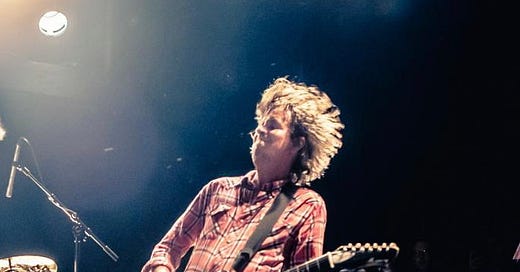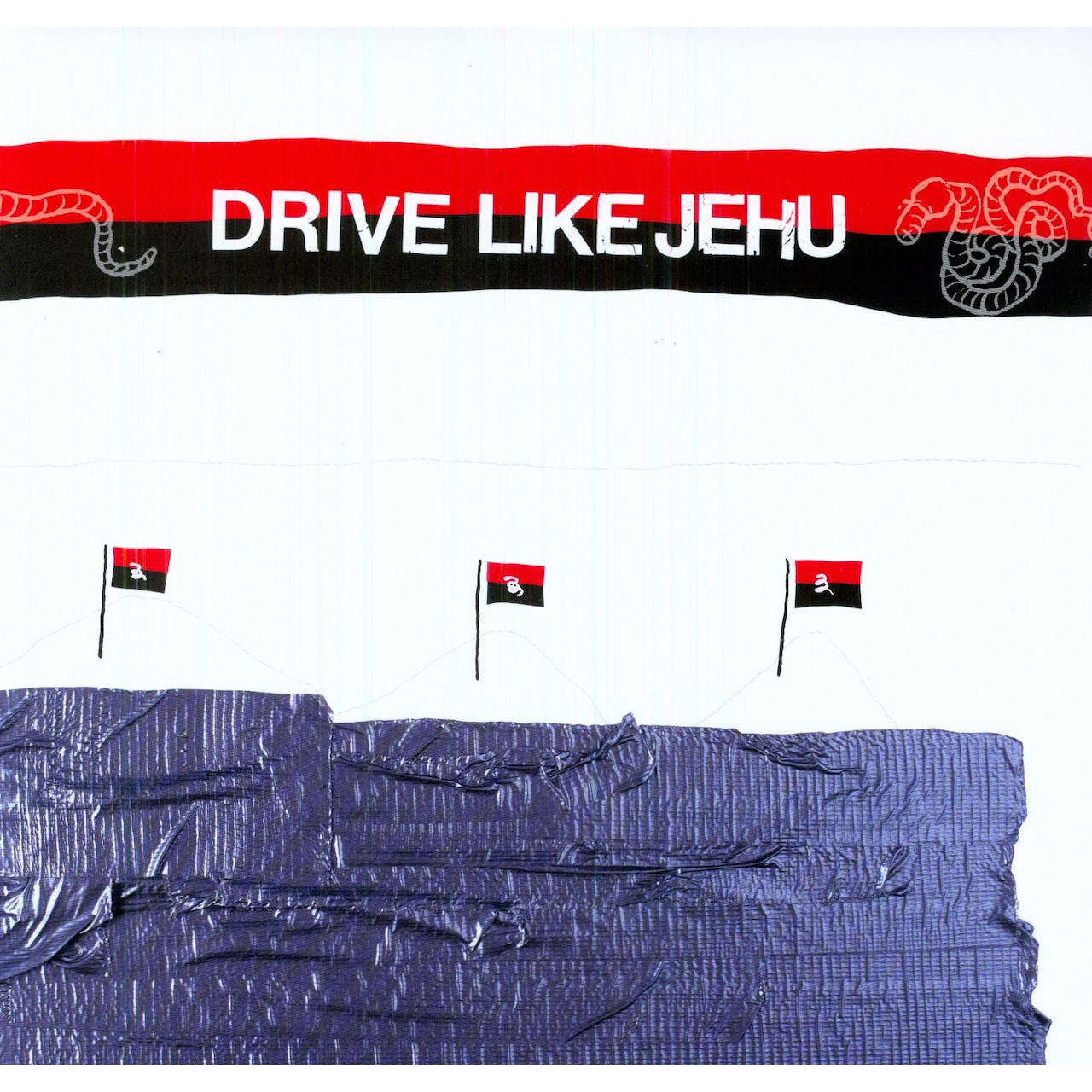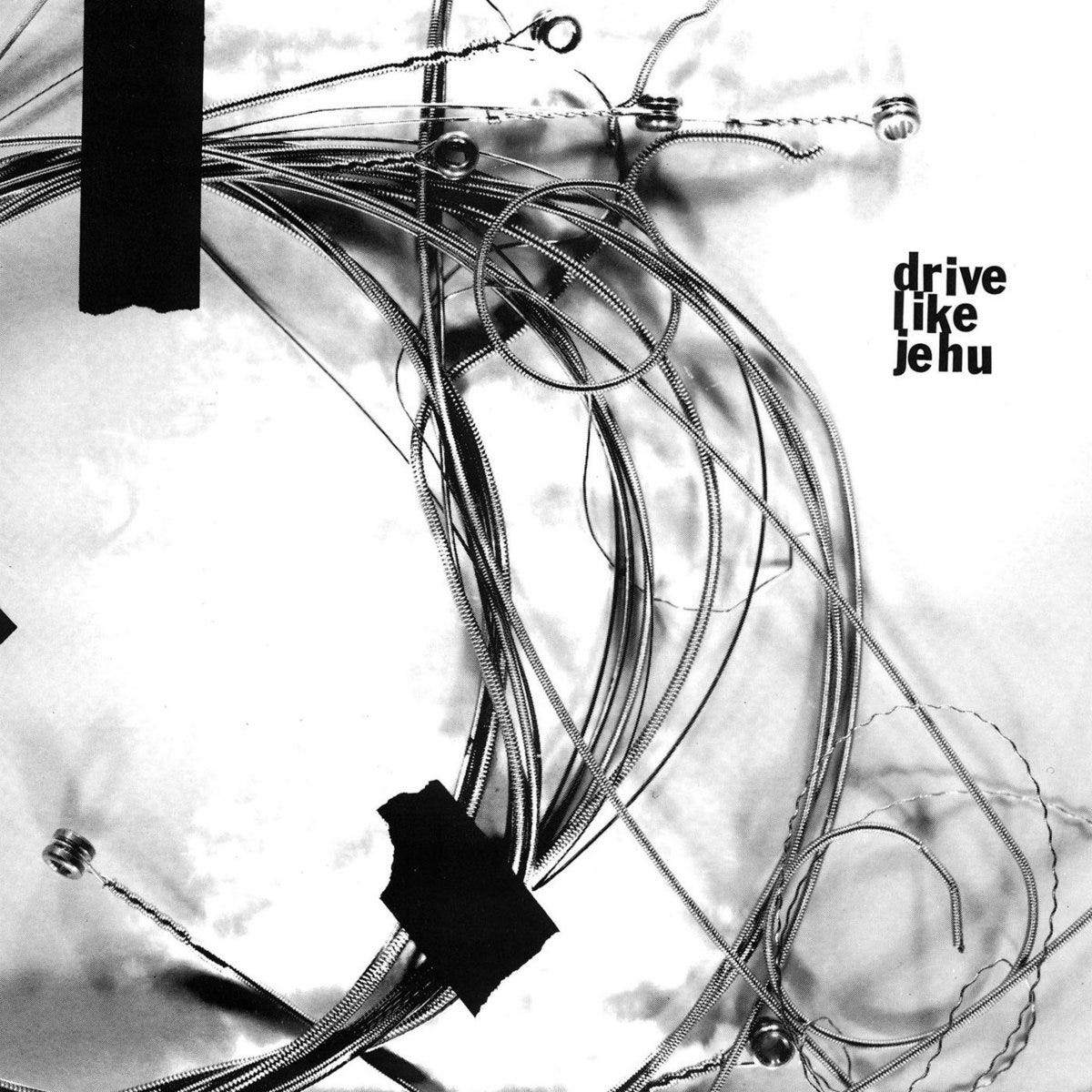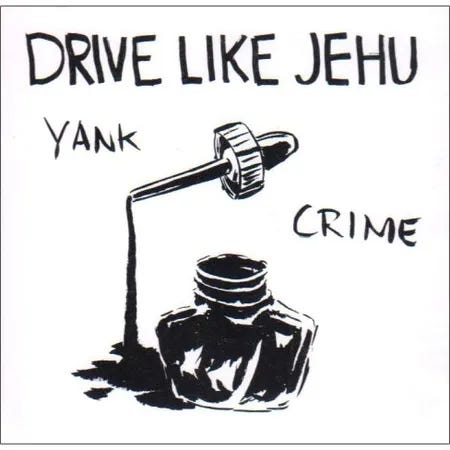Rick Froberg, the beloved singer and guitarist in the San Diego band Drive Like Jehu, passed away last Friday at the age of 55. Although I never knew Rick, his music had a profound impact on me during the ‘90s, and Drive Like Jehu remains one of my favorite bands of all time.
I first encountered Rick’s voice in early 1992 when his insistent, melodic scream caused me to immediately reach for the phone and dial my college radio station, KUPS, to find out what was playing: Drive Like Jehu. That weekend, my friends and I made our typical 45-minute trek from Tacoma to visit several Seattle record stores in search of Drive Like Jehu’s self-titled debut CD. Seattle had many great stores at the time—Orpheum, Fallout, Cellophane Square, Bedazzled, Park Avenue—but none of them carried the CD. On the way home, we made one last stop at Silver Platters by the Tacoma Mall—a large store that seemed like a long shot. To my surprise, I found the homemade looking Drive Like Jehu CD sitting in the miscellaneous “D” section. The album, which I listened to non-stop, pulled me away from the Seattle bands I was growing tired of, and pushed me further toward more challenging bands like Fugazi and Sonic Youth, but with a heightened level of intensity, most of which came from Rick’s arresting voice. I still get goosebumps every time I hear the blood-curdling high notes on “If It Kills You.”
In the summer of 1992, I was lucky enough to see Drive Like Jehu perform live at Seattle’s Off Ramp where they opened for Sub Pop’s newest signing, The Supersuckers. As I entered the dingy, dark club—likely for the first time using my real ID—I couldn’t help but notice Sub Pop Records co-founder, Bruce Pavitt, an imposing figure with a bushy dark beard and a flat-topped baseball cap. I was excited that he and I shared the same taste not only in the bands Sub Pop had signed, but also in lesser-known, angular, dissonant guitar bands.
Drive Like Jehu opened their set with “Caress,” the first song on the album, and when the band kicked in after guitarist John Reis’ intro, I was floored. I’d seen plenty of powerful rock bands, as well as my fair share of nerdy, college radio influenced upstarts. Drive Like Jehu somehow encapsulated the best of all of them and upped the ante. John Reis had a muscular, relatively clean guitar sound, while Rick’s was more jangly and brittle, exuding a rawness that emanated more from his body than his mind. Rick and John’s guitars complimented one another perfectly with layers of complex interplay, and I remember thinking, as I stood close to the stage with each of their amps pointed at my head, this is why bands have two guitars.
Next they played sharp, frenzied renditions of “Bullet Train To Vegas” and “Hand Over Fist,” both from what is arguably the best 7” single ever to be released. Between songs I turned around, shocked to find only twenty or so people behind me. A momentary sense of dismay washed over me as I realized that the outside bar area was packed with people who were missing out on the best band in the world. Drive Like Jehu, however, seemed unaffected as they plowed through their set with ferocity. The band obviously had something to prove.
After the set, I mustered up the courage to place one foot on the stage. To my surprise, no one stopped me, so I hopped on stage and approached John Reis, who smiled as he wrapped his guitar cable. When I presented my CD and a pen and asked for his autograph, he seemed taken aback, as if I were the first person ever to make such a request. He politely declined. Twice. Rick, on the other hand, happily grabbed my pen and scribbled on the CD insert, perhaps swayed by my brilliant comment, “Great set, man.”
That was the only time I ever spoke to Rick. Years later, when he and I both lived in Brooklyn, I occasionally saw him at the Bell House or around my neighborhood. Each time, I felt embarrassed about my fandom on that Off Ramp stage in 1992, and despite having mutual friends, I never introduced myself. Now, I find myself wishing I’d expressed to him how profoundly inspiring that Off Ramp show had been for me both as a fan and as a musician. I wish I’d told him that I pursued drums instead of guitar partially because I knew I’d never be able to play guitar like he or John did that night. And I wish I’d told him about the enduring impact that his music continues to have on me more than thirty years later.
I got to see Drive Like Jehu three more times: during the summer of 1993 at Seattle’s Crocodile Cafe, where they mostly played songs from their yet-to-be released second and final album, Yank Crime; in the summer of 1994 at Salt Lake City’s tiny, packed Cinema Bar on the Yank Crime tour; and finally, at Brooklyn’s Bell House on their highly-anticipated 2016 reunion tour. Every Drive Like Jehu show made most other bands look like amateurs, but no show will ever surpass that night in Seattle in 1992, where Rick screamed, sang, and played to twenty people as if there were 20,000 of us.
I recently published two new pieces: For Fortune, I wrote about The Cure really giving it to the people on their recent tour. And for Shondaland, I wrote about Loving Day, the annual celebration of the 1967 Supreme Court ruling that banned laws against interracial marriage.
This summer is looking pretty calm for book events with just a few in August. Fear not, I’ll be back in the fall at some universities and other hot spots in Tucson, Detroit, and more. Event details and updates can always be found HERE.
Fri Aug 4: Brooklyn, NY @ Prospect Park’s Lena Horne Bandshell in conversation with Brooklyn Mag’s Brian Braiker. 6pm
Wed Aug 23: Los Angeles, CA @ Reparations Club / in conversation with Traci Thomas. 7pm
Fri Aug 25: Port Townsend, WA @ Thing (music festival) / in conversation with John Roderick. time tba
My memoir My Life in the Sunshine is out now. I’d love it if you picked up a copy at your local independent bookstore. It’s also available at all the big places, and for your Kindle as well. There’s an audiobook that I spent 20 hours of my life reading (it’ll only take 7 hours to listen). You can listen to the 5-minute intro for free on Spotify.
I hope to see you somewhere soon.
Nabil Ayers / Brooklyn









Brilliant. Thank you for sharing